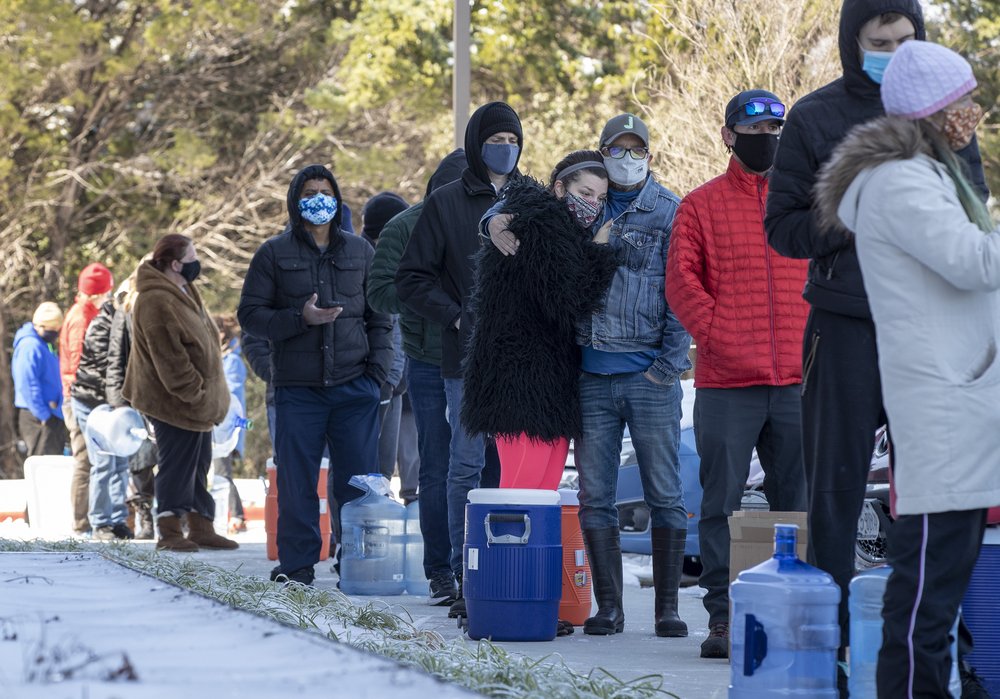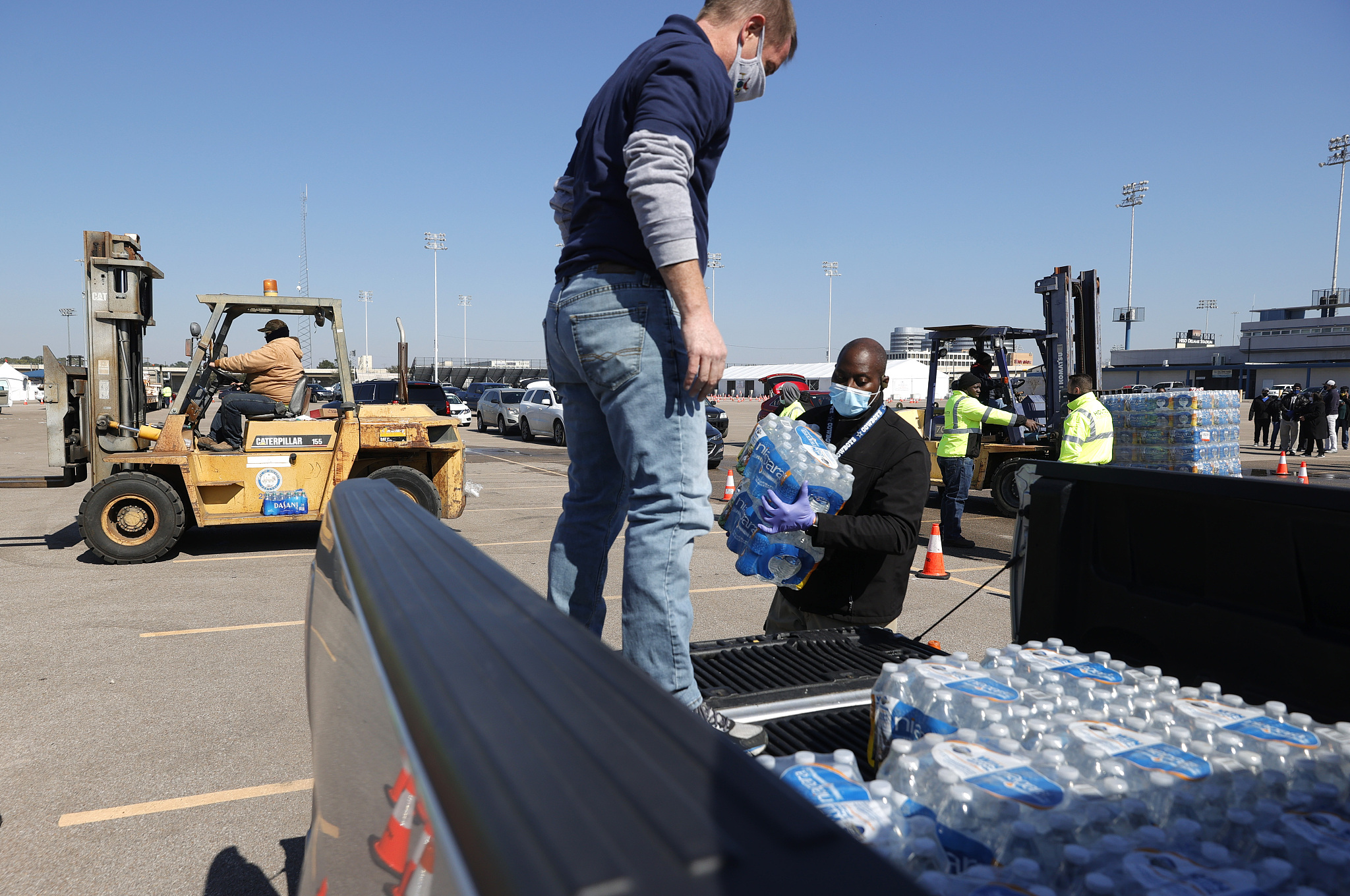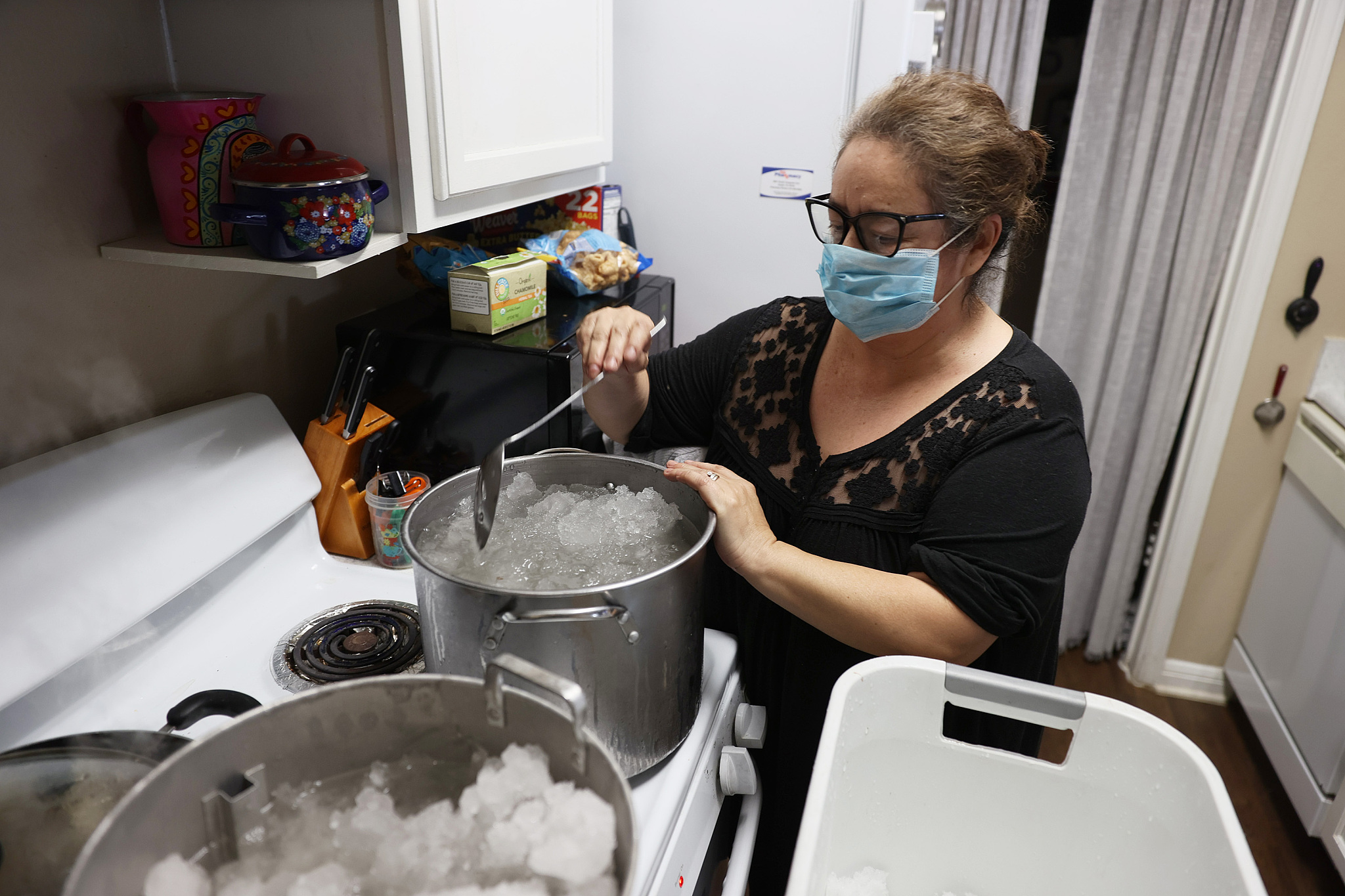
People wait in line to fill up their containers with water in Austin, Texas, February 19, 2021. /AP
People wait in line to fill up their containers with water in Austin, Texas, February 19, 2021. /AP
Southern cities in the United States slammed by winter storms that left millions without power for days have traded one crisis for another: Busted water pipes ruptured by record-low temperatures created shortages of clean drinking water, shut down a local airport on Friday and left hospitals struggling to maintain sanitary conditions.
In Texas, seven million people – a quarter of the population of the nation's second-largest state – were under orders to boil tap water before drinking it because low water pressure could have allowed bacteria to seep into the system. A man died at an Abilene health care facility when a lack of water pressure made medical treatment impossible.
In Tennessee's largest county, about 260,000 homes and businesses were told to boil water because of water main ruptures and problems at pumping stations. Restaurants that can't do so or don't have bottled water were ordered to close. And water pressure problems prompted Memphis International Airport to cancel all incoming and outgoing Friday flights.

Volunteers load cases of water onto a truck during a mass water distribution at Delmar Stadium in Houston, Texas, February 19, 2021. /CFP
Volunteers load cases of water onto a truck during a mass water distribution at Delmar Stadium in Houston, Texas, February 19, 2021. /CFP
In Jackson, Mississippi, most of the city of about 161,000 had no running water. Crews pumped water to refill city tanks but faced a shortage of chemicals for treatment because icy roads made it difficult for distributors to deliver them, Mayor Chokwe Antar Lumumba said.
He said the city's water mains are more than 100 years old and not built to handle the freezing weather that hit the city as multiple storms dumped record amounts of snow across the South.
"We are dealing with an extreme challenge with getting more water through our distribution system," said Lumumba.
The city was providing water for flushing toilets and drinking, but residents had to pick it up, leaving the elderly and those living on icy roads vulnerable.
Lisa Thomas said her driveway on a hill in Jackson was a sheet of ice. Her husband, who is on a defibrillator and heart monitor, has only enough heart medication to get him through Sunday because she hasn't been able to go to the pharmacy.
"People are in dire need here," Thomas said.

A woman melts snow on the kitchen stove to flush the toilets, Austin, Texas, February 19, 2021. /CFP
A woman melts snow on the kitchen stove to flush the toilets, Austin, Texas, February 19, 2021. /CFP
Paul Lee Davis got to the front of the line at a water station set up by city officials only to have the water run out. He was still waiting for it to be replenished three and a half hours after he arrived.
"We need water, the stores all are out. I don't see what choice we have," Davis said.
The water woes were the latest misery for residents left without heat or electricity for days after the ice and snow storms earlier in the week, forcing rolling blackouts from Minnesota to Texas.
Texas electrical grid operators said Friday that transmission had returned to normal for the first time since historic snowfall and single-digit temperatures created a surge in demand for electricity to warm up home – buckling the state's power grid and causing the widespread blackouts.
Smaller outages remained, but Bill Magness, president of the Electric Reliability Council of Texas (ERCOT), said the grid now can provide power throughout the entire system.
Governor Greg Abbott ordered an investigation into the failure for a state known as the U.S. energy capital. ERCOT officials have defended their preparations and the decision to begin forced outages Monday as the grid reached a breaking point.
The storms also left more than 330,000 from Virginia to Louisiana without power. About 60,000 in Oregon on Friday were still enduring a weeklong outage following a massive ice and snowstorm. Oregon's governor ordered the National Guard to go door-to-door in the hardest-hit areas to ensure residents have enough food and water.
The extreme weather was blamed for the deaths of at least 70 people, including people struggling to get warm and a Tennessee farmer who tried to save two calves that wandered onto a frozen pond.
Source(s): AP

